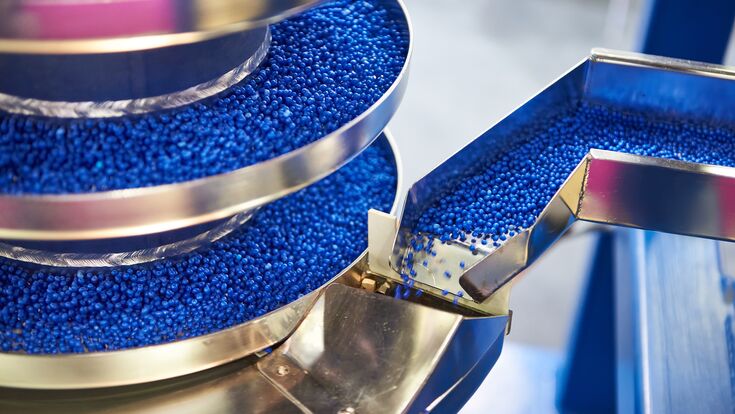K 2025 : Southeast Asia: Powering plastics and global supply chains through innovation

Southeast Asia’s plastics industry has become a cornerstone of global supply chains. Amid escalating tariffs and trade disruptions, especially between the US and China, ASEAN economies are attracting global manufacturers seeking diversified sourcing locations. The region's robust industrial ecosystem—spanning automotive, chemicals, medical devices, and packaging—makes it an ideal hub.
According to Mordor Intelligence, plastics turnover in Southeast Asia is expected to grow from 32 million tonnes in 2025 to nearly 39 million tonnes by 2030, underpinned by demand from consumer goods, rising urbanisation, and an increasingly strategic role in global logistics.
Vehicle innovation drives demand
Electric vehicles (EVs) are driving a fresh wave of industrial development across ASEAN. Known for low per capita CO₂ emissions, the region is leveraging this advantage by investing heavily in EV production and supporting infrastructure.
Thailand, dubbed the "Detroit of Asia," is at the forefront—offering tax breaks and attracting players like BYD. Malaysia is following with the debut of its first domestically produced EV, the e-Mas, developed by Proton and Geely. Meanwhile, Indonesia’s dominance in nickel production is giving it an edge in EV battery manufacturing, with a US\$1 billion plant now operational. These initiatives will amplify plastics demand for components, insulation, and casings.
However, the sector faces hurdles such as battery costs, a lack of skilled labour, grid limitations, and inconsistent charging standards. The US-ASEAN Business Council underscores the importance of foreign direct investment in overcoming these barriers.
Healthcare markets stimulate plastics growth
As Southeast Asia’s healthcare needs surge, so does the demand for plastic-based medical devices. The market is projected to reach US\$16 billion by 2029, driven by innovation in telemedicine, robotics, and AI applications.
Malaysia is targeting high-value segments like in-vitro diagnostics and imaging systems, while Vietnam focuses on plastic consumables. Singapore’s medtech sector is rapidly expanding, although recent cybersecurity requirements could create new compliance challenges. These trends present significant opportunities for plastics manufacturers looking to diversify into high-growth, regulated markets
Bioplastics: Green chemistry in action
Southeast Asia is also rising as a center for sustainable plastics production, particularly in Malaysia and Thailand. These countries are converting agricultural waste—like palm oil residues and sugarcane—into bio-based polymers such as PLA, PHA, and bio-ethylene.
Thailand hosts several major ventures, including Total Corbion PLA and NatureWorks, supporting applications from compostable packaging to 3D printing. Malaysia, meanwhile, is utilising microbial fermentation to produce a diverse range of bio-polymers.
Still, the bio-plastics sector faces structural disadvantages: high costs, limited manufacturing scale, and uncertain regulation. Feedstock volatility and infrastructure gaps also hamper scalability. Despite this, investment momentum continues to grow, buoyed by increasing consumer and industrial interest in sustainable alternatives.
Recycling renaissance in the region
Waste management, particularly plastics recycling, is taking center stage across ASEAN. Indonesia has launched an ambitious US\$18 billion marine plastics reduction roadmap, with private players like Indorama and Danone-Aqua building advanced rPET facilities.
Thailand and Malaysia are also scaling up. SCG and Dow, for example, are aiming to recycle 200,000 tonnes of plastic per year by 2030, supported by advanced sorting technologies. Petronas Chemicals is building a chemical recycling facility in Johor, slated to process 33 kilotonnes of plastics annually.
Vietnam is rapidly growing its recycling capacity, aided by foreign investment from players like Intco and Cedo. However, nations like Cambodia and Myanmar still lack adequate infrastructure—despite soaring plastic consumption.
Regional participation at K 2025
Reflecting Southeast Asia’s rising global profile, fifty exhibitors from the region will be featured at K 2025, the world’s leading plastics and rubber trade fair. Malaysia leads the delegation with 15 exhibitors, followed by Thailand and Singapore with 11 each.
K 2025 will take place in Düsseldorf from October 8–15, and industry professionals can expect a showcase of the region’s innovations in plastics, recycling, medical technology, and bio-based materials—underscoring ASEAN's role as a dynamic force in shaping the future of global supply chains.
WMW is a media partner of K 2025.
